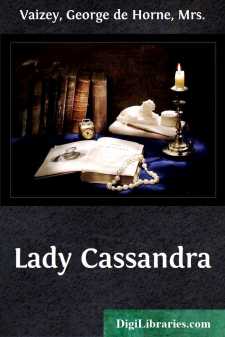Categories
- Antiques & Collectibles 13
- Architecture 36
- Art 48
- Bibles 22
- Biography & Autobiography 813
- Body, Mind & Spirit 142
- Business & Economics 28
- Children's Books 15
- Children's Fiction 12
- Computers 4
- Cooking 94
- Crafts & Hobbies 4
- Drama 346
- Education 46
- Family & Relationships 57
- Fiction 11829
- Games 19
- Gardening 17
- Health & Fitness 34
- History 1377
- House & Home 1
- Humor 147
- Juvenile Fiction 1873
- Juvenile Nonfiction 202
- Language Arts & Disciplines 88
- Law 16
- Literary Collections 686
- Literary Criticism 179
- Mathematics 13
- Medical 41
- Music 40
- Nature 179
- Non-Classifiable 1768
- Performing Arts 7
- Periodicals 1453
- Philosophy 64
- Photography 2
- Poetry 896
- Political Science 203
- Psychology 42
- Reference 154
- Religion 513
- Science 126
- Self-Help 84
- Social Science 81
- Sports & Recreation 34
- Study Aids 3
- Technology & Engineering 59
- Transportation 23
- Travel 463
- True Crime 29
Sort by:
THE FIRST CHAPTER. What manner of people did first inhabite this our country, which hath most generallie and of longest continuance béene knowne among all nations by the name of Britaine as yet is not certeinly knowne; neither can it be decided frÐâ¦ÐÐ whence the first inhabitants there of came, by reason of such diuersitie in iudgements as haue risen amongst the learned in this The...
more...
by:
Mark Rutherford
GIDEON. The story which Jotham told his children on the day before his death concerning the achievements of his father Gideon—His comments and those of Time thereon. I am an old man, and I desire before I die to tell you more fully the achievements of your grandfather. Strange that this day much that I had forgotten comes back to me clearly. During his youth the children of the East possessed the...
more...
by:
E. E. Adams
Government and Rebellion. An evil man seeketh only rebellion; therefore a cruel messenger shall be sent against him.--Prov. xvii. 11. We have in these words this plain announcement--that Rebellion is a crime, and shall be visited with terrible judgment. Solomon here speaks his own convictions; God declares his thought, and utters his sanction of law. This is also the expression of natural...
more...
Ye have heard of the false alarm, (said Roger Goldie,) which, for the space of wellnigh four and twenty hours, filled the counties upon the Border with exceeding great consternation, and at the same time called forth an example of general and devoted heroism, and love of country, such as is nowhere recorded in the annals of any nation upon the face of the globe. Good cause have I to remember it; and...
more...
INTRODUCTORY NOTE BENJAMIN FRANKLIN was born in Milk Street, Boston, on January 6, 1706. His father, Josiah Franklin, was a tallow chandler who married twice, and of his seventeen children Benjamin was the youngest son. His schooling ended at ten, and at twelve he was bound apprentice to his brother James, a printer, who published the "New England Courant." To this journal he became a...
more...
Chapter I."Good morrow, coz.Good morrow, sweet Hero."SHAKSPEARE.When Mr. Effingham determined to return home, he sent orders to his agent to prepare his town-house in New-York for his reception, intending to pass a month or two in it, then to repair to Washington for a few weeks, at the close of its season, and to visit his country residence when the spring should fairly open. Accordingly, Eve...
more...
by:
Asgeir Petursson
Of the seven Icelandic short stories which appear here, the first was probably written early in the thirteenth century, while the rest all date from the early twentieth century. It might therefore be supposed that the earliest of these stories was written in a language more or less unintelligible to modern Icelanders, and that there was a gap of many centuries in the literary production of the nation....
more...
A NARRATIVE &c. &c. &c. I arrived at the camp at Wady Haifa on the Second Cataract, on the 16th of the moon Zilhadge, in the year of the Hegira 3255, where I found about four thousand troops, consisting of Turkish cavalry, infantry and artillery, and a considerable proportion of Bedouin cavalry and Mogrebin foot soldiers, besides about one hundred and twenty large boats loaded with...
more...
A Matrimonial Hurdle. Cassandra Raynor stood on the terrace of her great house, looking over the sweep of country stretching to right and left, and in her heart was the deadliest of all weariness,—the weariness of repletion. It seemed at that moment the bitterest cross that she had nothing left for which to wish, that everything good which the world could give was hers already, and had left her cold....
more...
MISS THOMASINA TUCKER I “Good-bye, Miss Tucker!” “Good luck, Miss Tommy!” “Bye, bye, Tomsie!” “Don’t stay away too long!” These sentiments were being called from the Hoboken dock to the deck of an ocean steamer, while a young lady, buried in bouquets and bonbons, leaned over the rail, sparkling, inciting, compelling, responding. “Take care of yourself, Tommy!” “I don’t see but...
more...











